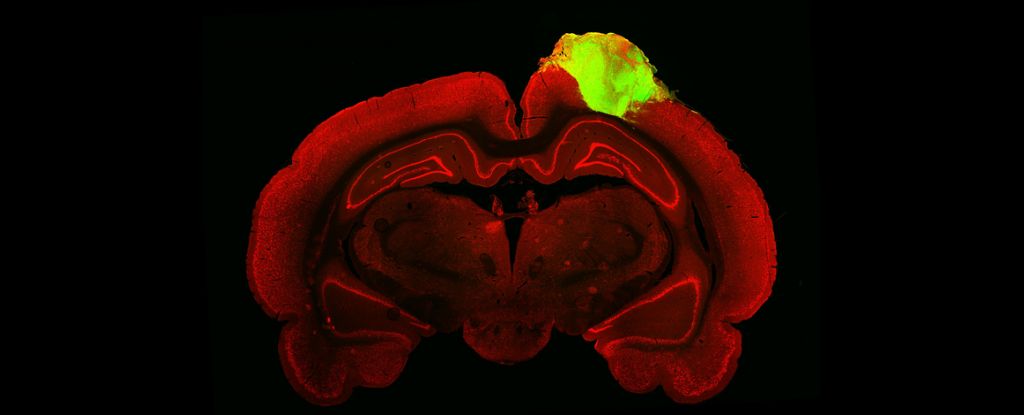The future of healing serious brain injuries is closer than ever before. In a groundbreaking new study, scientists have successfully transplanted human mini-brains, or cortical organoids, into the brains of adult rats, and in just three months the neurons in the organoids started to respond to visual stimuli.
This remarkable feat is the result of years of research into the field of induced pluripotent stem cells, or IPSCs, which are generated from adult stem cells and reverse engineered into an embryonic-like undifferentiated state. By genetically modifying these IPSCs to express green fluorescent protein, scientists were able to grow human mini-brains in the lab and then transplant them into the brains of adult rats with large cortical injuries.
The rats were injected with fluorescent-tagged viruses that traveled along their synapses, allowing the researchers to trace the neuronal connections from the rats’ retina all the way back to the brain transplanted organoids. Then, while the rats were shown flashing lights and images consisting of alternating black and white bars, the researchers used electrodes to study activity within the organoid. Around 25 percent of the human neurons responded to the light stimulation.
This remarkable experiment shows great promise for the future of healing serious brain injuries. The research team recommends using genetically immunosuppressed rodents for longer term studies, as this could help to further understand how organoids could be used in other areas of the cortex, not just the visual cortex. The possibilities are endless and the potential for healing is greater than ever before.
Source: www.sciencealert.com
